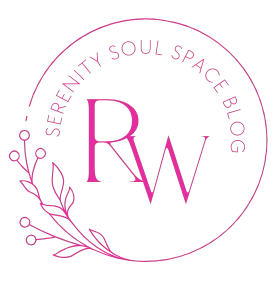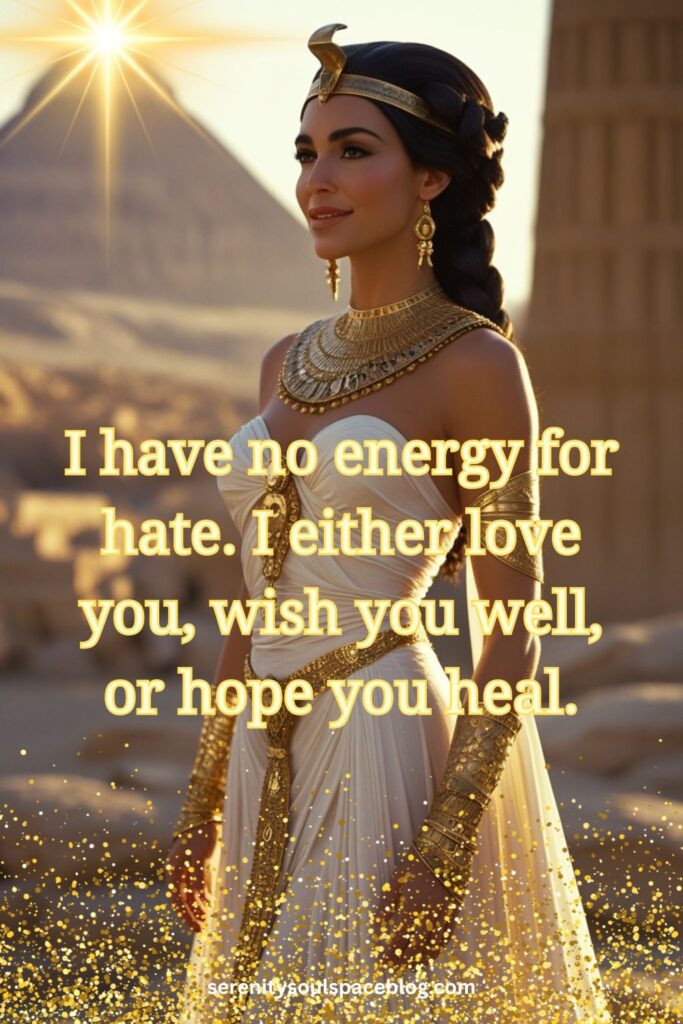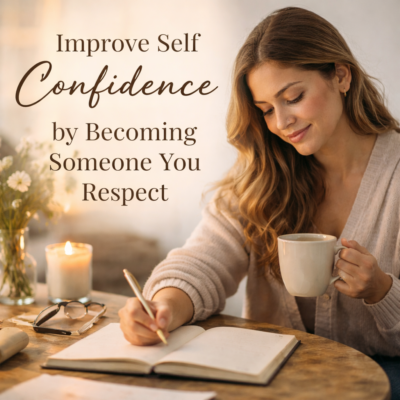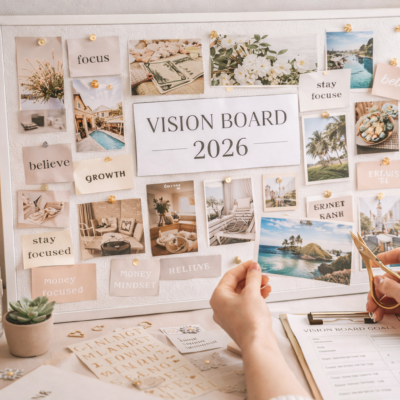I Have No Energy for Hate: How to Protect Your Peace and Glow Up with Grace
This post contains affiliate links, which means I may earn a small commission at no extra cost to you if you purchase through them. I only recommend products I truly love and think you’ll vibe with, too. Check out our privacy policy and disclosure here.
“I have no energy for hate. I either love you, wish you well, or hope you heal.”
Let’s be real — holding on to hate is exhausting.
You’ve got dreams to chase. Skin to glow. A life to live. And carrying the weight of bitterness, resentment, or anger doesn’t just dim your spirit — it drains your power.
That quote went viral for a reason.
It speaks to something deep inside us: the desire to be free, light, and unbothered. The need to protect our peace, not just for the aesthetics, but for our survival.
And in a world that constantly tempts us to clap back, compete, or carry grudges, choosing love, wishing people well, or hoping they heal — that’s radical.
That’s grown.
That’s grace.
So let’s unpack what this quote really means, and how to live it out with wisdom, strength, and glow-up energy
The Psychology of Releasing Hate and Bitterness
Here’s the truth most people don’t tell you: hate isn’t power — it’s a prison.
When you hate someone, your nervous system doesn’t know the difference between a threat in front of you or a thought in your head.
It keeps your body in fight-or-flight.
You’re tense, anxious, always ready to defend or attack.
That bitterness gets stored in your body like emotional toxins — raising your stress hormones, affecting your sleep, messing with your digestion, even showing up on your skin.
Research in psychology shows that ruminating on negative emotions (like anger, resentment, or envy) triggers chronic stress responses in the brain.
That means less focus, less emotional regulation, and yep — less energy for anything good.
On the flip side? Forgiveness, compassion, and detachment are scientifically proven to increase happiness, improve health, and boost your overall well-being.
When you let go of hate, you’re not letting someone off the hook — you’re letting yourself off the hook. You’re saying: “I choose peace. I choose joy. I choose me.
Why Protecting Your Peace Is a Form of Self-Love
You can’t glow up if you’re constantly being dragged down.
Protecting your peace doesn’t mean avoiding people forever or pretending bad things never happened.
It means being selective with your energy.
It means choosing where to focus your attention, who gets access to you, and what gets to live rent-free in your mind.
That’s not weakness. That’s wisdom.
Let’s be clear: Peace is not passive. It’s powerful. It’s what allows you to stay grounded in chaos. It’s the soft armor that keeps your spirit safe. And yes — it’s an act of self-love.
When you protect your peace, you’re doing a few things:
You’re honoring your nervous system. You’re not overloading it with toxic emotions or unnecessary drama.
You’re prioritizing your purpose. Peace gives you the clarity to focus on your goals and growth.
You’re creating space for joy. Bitterness takes up space joy needs to live.
You deserve a life that feels like calm, not chaos. And the only way to build that is by treating your peace like your most expensive perfume — rare, sacred, and not for everyone.
“Love, Wish Well, or Hope They Heal”: The Mindsets That Set You Free
Let’s break it down. These aren’t just nice-sounding words. Each part of this quote is a mindset shift — and each one is a stepping stone to emotional freedom.
1. “I Love You”
This is the highest frequency. It’s not always romantic or sentimental. Sometimes it’s quiet, steady, and unconditional. This love says: “I care for you. I value you. I see your humanity.”
This love is for:
Your closest people
The ones who show up for you
The ones you’re building with
Loving doesn’t mean agreeing on everything.
It means you choose connection over control, speak life–not death, and lead with grace, even when it’s hard.
2. “I Wish You Well”
This is the neutral ground. It’s polite and peaceful. It says: “I’m not bitter. I’m just done.”
This is for:
Ex-friends
Former coworkers
People who came and went from your life
No need for drama. No need to rehearse what went wrong. Just a silent nod, a whispered “bless you,” and a heart that’s still light.
This energy is clean, quiet, and powerful.
You don’t need closure when you carry this mindset. Wishing someone well is closure.
3. “I Hope You Heal”
This is the one we say when someone hurt us — and we’re choosing not to retaliate.
It’s neither sarcasm nor fake forgiveness. It’s real, mature, soul-deep grace.
This is for:
People who hurt you without apology
People stuck in toxic patterns
People who don’t know how to love right
“I hope you heal” doesn’t mean you forget what they did. It means you refuse to carry it any longer. You understand they acted from their wounds, not their wisdom. You don’t excuse it, but you don’t let it poison you either.
And listen — you can say “I hope you heal” while blocking them, unfollowing them, or never speaking again.
It’s not about them. It’s about you choosing peace over poison.
Practical Tips for Setting Emotional Boundaries
Let’s get practical. Living out this mindset means setting real boundaries — not just in your head, but in your habits.
Here’s how to do it:
✅ Protect Your Input
Your peace starts with what you allow in. If your feed is full of negativity, gossip, or drama — unfollow, mute, delete. Curate your energy like you curate your aesthetic.
✅ Limit Emotional Access
Not everyone deserves a front-row seat to your life. Keep your circle clean and your standards high. Give your energy to those who reciprocate — not drain you.
✅ Say “No” Without Explaining
“No” is a full sentence. You don’t owe long paragraphs. Protecting your peace doesn’t require permission.
✅ Schedule Solitude
Quiet time isn’t selfish. It’s how you recharge. Take intentional time away from noise — to pray, journal, walk, or just be. That silence is sacred.
✅ Use Your Voice
Boundaries aren’t just internal. Speak them out loud when needed. Be kind, but be clear. Don’t let people guess what’s okay — teach them with consistency
The Connection Between Inner Peace and Outer Glow
Let’s talk glow-up — because yes, peace shows up on your face.
When your nervous system is regulated, your cortisol (stress hormone) goes down, your sleep gets deeper, and your skin has a chance to renew. That calm shows up as clearer skin, brighter eyes, softer expressions.
But it’s more than physical. Inner peace changes your posture, your energy, your presence. People can feel when you’re not carrying bitterness. You walk different. You shine different. You attract better — because you are better.
Your skincare routine matters. Your beauty rituals matter. But the real glow-up? That’s spiritual, emotional, and internal.
The most magnetic people aren’t always the loudest or flashiest — they’re the ones who’ve mastered calm.
They’re neither moved by chaos nor triggered by petty things.
They have a softness that comes from strength.
Glow Up with Grace, Not Grudges
Let this be your reminder: you don’t have to fight every battle. You don’t have to prove your point. You don’t have to carry bitterness to be strong.
You can choose peace.
You can choose growth.
You can choose grace.
And in doing so, you protect your energy, elevate your mindset, and glow in a way no highlighter ever could.
So next time someone crosses a line or breaks your heart or tests your patience, whisper it like a prayer:
“I have no energy for hate. I either love you, wish you well, or hope you heal.”
And then — go live your beautiful, powerful, glowing life
Want more peace-filled glow-up content? Save this post, pin it, and share it with someone who needs the reminder. Your peace is your power. Protect it. ✨
You may also like…









No Comment! Be the first one.